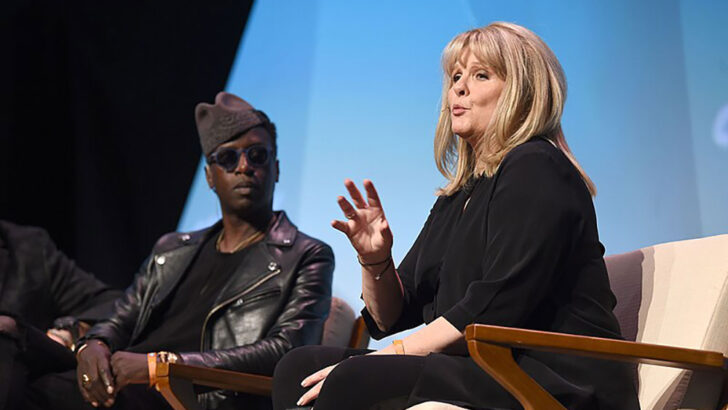How we treat our children is something of a conundrum, but doing it well is surely a mark of how caring and genuine our society is. I observe how much we love our children, how most parents would do anything for them, even give their own lives if required. We see the unbearable grief when a child is lost. And yet some parents abuse their children and some institutions, including Church, State and sports bodies have fallen far short in the care they give to our children.
These thoughts were prompted by several stories in the media. Early this week on Morning Ireland (RTÉ Radio 1, Monday July 8), we heard from Dr Maria Corbett of the Child Law Project, with disturbing stories of state bodies failing children on a distressing scale. A High Court judge said there was “a tsunami about to reach shore and nothing is being done”. There were stories of child trafficking, sexual abuse and “instability in care placements”. A judge described some children as “effectively homeless,” though in the care of the State. There are obviously huge failures in oversight and no doubt some of the problem is resource related, but that doesn’t excuse the failings. Recently it was also reported that the majority of a fund intended for the relief of scoliosis in children was used, according to the Minister for Health – “more broadly across Child Health Ireland”.
Sometimes it’s a matter of skewed priorities – millions can be found for the prevention of children (free contraception) and the destruction of children (free abortions). Children and pregnancies are not diseases and yet those children who have real medical problems often have trouble accessing the necessary help.
How social media and modern communications technology damages children has been discussed frequently, but action is very slow. On Sunday Sequence (BBC Radio Ulster) cyber psychologist Mary Aiken, once again highlighted the dangers. She found some sign the tide was turning in the recent suggestion by the US Surgeon General Vivek Murphy that cigarette-like health warnings be attached to social media websites, drawing attention to the “significant mental health harms”. She also drew attention to his game-changing statement that “unleashing powerful technology which has never been proven safe has contributed to a mental health emergency amongst teenagers”. She saw “increasing levels of anxiety and depression” in young people, with increasing self-harm and suicidal ideation. I’d suspect there are other contributing factors, like climate anxiety, relationship confusion or the lack of religious faith giving direction and meaning.
Lawyer Paul Tweed feared there was “a generation of young people addicted to screens”. In his efforts to effect change, he found it very difficult dealing with the tech giants. In fact, with the development of Artificial Intelligence, he suspected he was dealing with AI generated responses when engaging with them. It was only when lawyers got involved that you got to communicate with an actual human. He saw a battlefield opening up, including the possibility of class actions, and much of the action might centre on Ireland where many of the big tech companies have their European headquarters. He thought we needed a strong regulatory framework but one that was enforced. Indeed, I thought, we are far better in Ireland in making rules (the easy bit) than in enforcing them (the tricky bit).
Interview
Not unrelated was the interview with pop singer and Grammy winner Kaya Jones on Mornings with Kieran (Spirit Radio, Friday). Jones had several abortions, which she regretted, and was in Dublin to speak at last weekend’s Rally for Life. She was critical of the exploitation of young women in the music industry. She once had to perform while a medical abortion was in progress, and seeing young girls looking up to her on stage she felt she had a responsibility to do better. She thanked God for saving her life, for steering her away from the secular world towards the Gospel world where she could sing for Him. She engaged in detailed study of Scripture and now wanted to educate young people, to help them make better decisions – she said, “when we know better, we do better”.
We can virtue signal, tick boxes, engage in pious platitudes, pass a children’s rights referendum and then take away their right to be born, but the practical approaches of Kaya Jones, as with the efforts of Mary Aiken, Paul Tweed and the Children’s Law Project, give real hope.
*
PICK OF THE WEEK
National Day of Commemoration
RTÉ One Sunday July 14, 10.55am
Annual ceremony of remembrance for all Irish people who died in wars or on service with the United Nations.
SONGS OF PRAISE
BBC Two Sunday July 14, 1.15pm
Aled Jones explores fascinating hidden gem churches in London with historian and tour guide Joanna Bogle.
ST THERESE – DOCTOR OF THE CHURCH: A HISTORICAL PERSPECTIVE
EWTN Sunday July 14, 9pm
Looking at the life and world of St Therese of Lisieux, her writings and an examination of their relevance to Catholics today.


 Brendan O’Regan
Brendan O’Regan Mary Aiken, cyber psychologist. Photo: Diarmuid Greene
Mary Aiken, cyber psychologist. Photo: Diarmuid Greene 